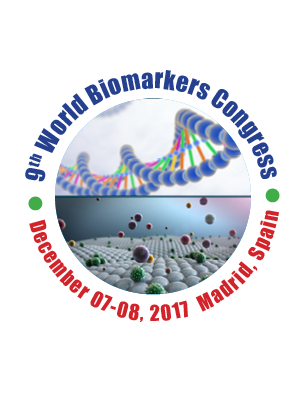
Isabel Desgagné-Penix,
Université du Québec à Trois-Rivières, Canada
Title: Systems biology and metabolic engineering of microalgae for the production of pharmaceutical Amaryllidaceae alkaloids
Biography
Biography: Isabel Desgagné-Penix,
Abstract
Several Amarylllidaceae plant alkaloids (AAs) possess powerful pharmaceutical and biotechnological properties. Thus, AA metabolism and its fascinating molecules, including anti acetylcholinesterase galantamine, anti-microbial lycorine and anti-cancer narciclasine, have attracted the attention of both the industry and researchers involved in plant science, chemical bioengineering and medicine. Currently, access and availability of high-value AAs [commercialized (e.g. galantamine) or not (e.g. narciclasine)] is limited by low concentration in nature, seasonal production and time-consuming low-yield extraction methods. Nevertheless, commercial AA galantamine is still extracted from plant sources. Eff orts to improve the production of AA have largely been impaired by the lack of knowledge on AA metabolism. Th e purpose of this study was to use recent development and integration of next-generation sequencing technologies and metabolomics analyses to unravel metabolic pathways allowing the use of metabolic engineering and synthetic biology approaches to increase production of valuable AAs. Novel genes encoding AA biosynthetic enzymes were identifi ed from our transcriptome databases using bioinformatics tools. The genes were characterized, and their activities were studied through classical biochemistry experiment such as cloning into expression vectors, heterologous expression, recombinant protein purifi cation and specifi c enzyme assays. In addition, AA precursor pathway was introduced into microalgae cells to validate the function of the biosynthetic genes and to produce AA metabolites (precursors and intermediates). Next, the final steps of the AA biosynthetic pathway will be added to reach galantamine or other AA synthesis in microalgae. Metabolic engineering provides opportunity to overcome issues related to restricted availability, diversifi cation and productivity of plant alkaloids. Engineered cells can act as iofactories by off ering their metabolic machinery for the purpose of optimizing the conditions and increasing the productivity of a specific alkaloid.

